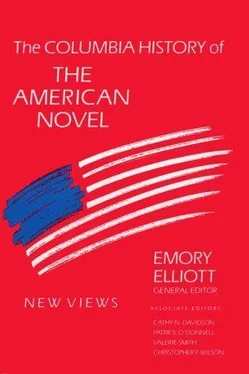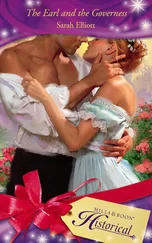Without diminishing any of the acclaim deserved by such writers as Melville, James, Twain, Faulkner, and Wharton for their many extraordinary works, contemporary critics are finding that many works previously rejected under the labels listed above need rereading and reevaluation upon their own terms. To cite one example, Kate Chopin's The Awakening (1899) nearly slipped out of literary history in the twentieth century because it was condemned as immoral in its day and damned with faint praise some years later as a competent work of local color and women's fiction. Rediscovery and reevaluation have put this highly structured, imagistic study of psychic torment and sexual passion on the reading lists of hundreds of college courses and have generated many serious studies of Chopin's work.
The process of research and rediscovery is continuing, thus enabling those books that were previously undervalued because they were misread and judged by unsuitable standards or were rejected because of blind prejudice to take their rightful place in our literary history. If literary historians might seem to some to be leaning rather far in the direction of tolerance and inclusion, it is because for much -xii- of this century the extreme opposite conditions prevailed, and much of the rich literary heritage of the nation was excluded from public appreciation by the decisions of a few.
The subject of history is change, and literary histories are part of history. Thus, it stands to reason that literary histories both examine change and change themselves with the passing of time. Every literary genre is dynamic, and literary history is no exception. A literary history of the novel in America published in 1991 will be and should be markedly different in many ways from such a work published ten or twenty years earlier. Indeed, this present work differs in many aspects of its approaches from the 1988 Columbia Literary History of the United States for which I was General Editor. Planning for that volume began in 1982, and the nine intervening years have brought substantial developments in the theories and methods of criticism and literary history. In fact, the nature and purpose of literary history and the literary canon it surveys have been subjects of much scholarly debate.
For example, consider the titles of the two histories. Because the scope of the Columbia Literary History of the United States was so broad, the literature examined was limited to that which had been produced in the part of the world that has become the United States. Since the United States does not constitute all of "America" — in spite of the common usage of the terms as synonymous — we did not use the term "American" in the title. With the present work focusing upon only one genre, there was room to broaden the geographic scope and include chapters on Canadian, Caribbean, and Latin American fiction.
The desire to make the space for these chapters, however, has come from the growing internationalization of literature and the study of it during the past decade. Scholars throughout the world have come to appreciate more fully the extent to which the literature of our various American nations are intertwined. The texts of South America and North America are in dialogue with each other. Novelists of Africa and the Caribbean have a profound effect upon writers in the United States and are affected by them in return. The rapid maturation of the fairly new field of comparative literary study and increasing scholarly interactions and exchanges among those who study these various literatures have deepened our understandings of -xiii- these cultural connections and made it compelling to the editors of this book to be more internationally inclusive. As evidence of how writing done all over the world has become part of our own culture, a chapter on "Colonialism, Imperialism, and Imagined Homes" rightly includes discussion of some figures who were neither born in nor lived in the Americas but whose works and experiences as novelists and public figures are a vital part of our larger literary culture.
Several other dimensions of this book spring from current critical attitudes. There are no chapters that are restricted to the fiction of women writers or of a particular racial or ethnic minority group. The works of women writers and of African American, Asian American, Chicano/a, and Jewish writers are taken up within chapters that address larger themes that are not limited by such categories. In 1982, the editors of the Columbia Literary History of the United States concluded, after extensive consultation with colleagues sensitive to the issues, that it was necessary to have specialists on women writers and on particular minority literatures write essays on those literatures because the large numbers of newly recognized writers of those groups were still not known to most critics who were nonspecialists. We wanted to be certain that the first collaborative literary history of the United States in forty years made the names and works of writers previously excluded from the canon better known so that other scholars and students could study their works. In this literary history we decided not to "ghettoize" the novels of minority writers in order to underscore the impact of minority cultures upon American culture as a whole and to problematize the boundary between "major" and "minor" literatures.
Another way in which this book differs from its Columbia University Press predecessor is that it was not driven by a desire to be comprehensive or to have chapters on single authors that would signal our assertions of who is "major" and who is "minor." There is clearly a chronological progression in the book with four historically organized sections introduced by a specialist in each period, but we did not make an attempt to "cover" every novelist in every decade nor did we assign a certain number of pages to be given to each author according to our sense of an author's relative importance in the canon. We asked each contributor to write an informative chapter about the topic we assigned. We welcomed them to focus closely -xiv- upon authors whose work most engaged them as critics and to demonstrate for our readers how historical information and critical contexts of the various periods can inform readings of the fictional texts. Some critics chose to be quite inclusive and to provide brief treatments of many authors, while others use a few representative texts to examine complex literary phenomena more deeply, such as the conventions of late nineteenth-century realism. The number of times an author's name appears in the index or the number of pages of the entire volume given to an author's work is not an indication of an editorial decision to pay special attention to particular writers over others but instead to reflect the degree to which a highly diverse group of critics turned to particular works as examples of the development of the novel as a genre and as a reflection of changes in American society.
Because we have chosen a thematic rather than a biographical approach, the reader will not find a consistent presentation of what was once called the "shape of the artist's career" unless one of our contributors happened to find a particular career illustrative of some larger cultural issues. To take the pressure of biography off our contributors and to provide the reader with a convenient summary of the lives and careers of the authors, we have provided an appendix of author biographies where such information is provided for a great many of the authors discussed in the text. For similar reasons, the chapters do not present references to other critical works about the literature through footnotes or parenthetical intrusions. However, those critics who are mentioned in the chapters can be found, along with many others, in the selected bibliography.
Читать дальше











